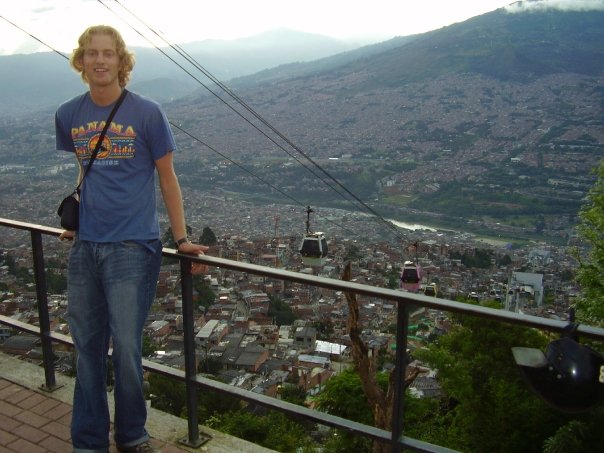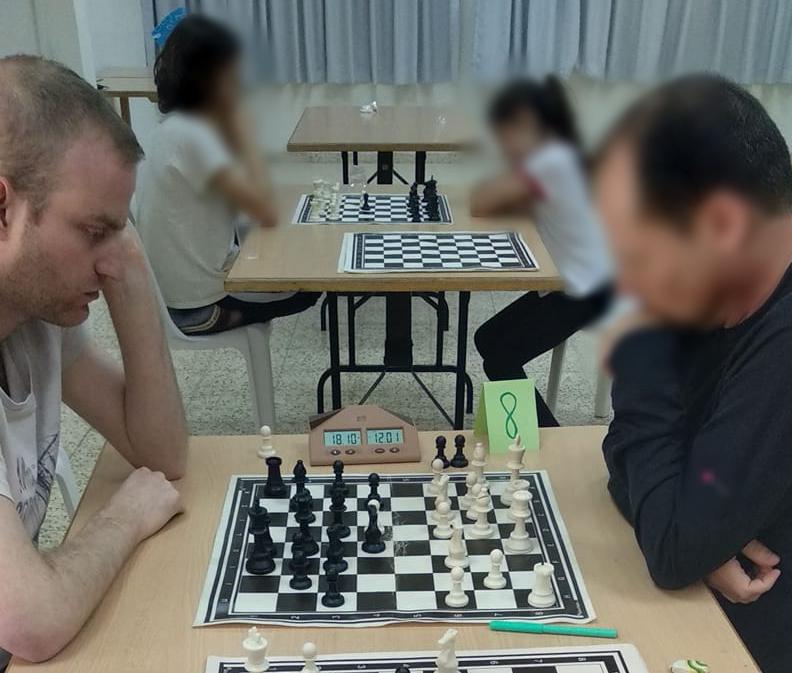It was Thursday evening, at the end of another regular working week. I’ve been chilling on the sofa, turned on the TV, and felt all the tiredness from the week spread in my body. My life was running on autopilot – working in an average back-office job, living the day-to-day routine, and then sleeping the whole weekend.
I’ve started wondering about the delightful days back in my 20s when I used to travel the world, discover beautiful places, and meet interesting people. I thought about how I could regain such passion for life under my current age and working circumstances.
In this post, I share how I found my passion at the age of 37 and what steps you can take to regain your passion. There are various possibilities out there, and each person has different life experiences that influence the search for passion. Yet, I have specified my dilemmas and thoughts so you could have some ideas on making progress in your journey.
This blog post suggests several ways to explore your passion and real-life examples to inspire you.
Disclaimer : The information provided in this site is for educational purposes only, and it is not a substitue for professional advice. The article may contain affiliate links. See the full disclaimer for more details.
- How to find your passion in your 30s or 40s
- Traveling the world while working as a digital nomad
- Moving to another company or changing a role
- Advanced studies abroad
- Finding your passion at work
- Finding your passion through a hobby
- Do small things that feel good
- Final thoughts on how can you find your passion again
How to find your passion in your 30s or 40s
It is very likely to feel lost somewhere during our 30s or 40s. When I got to my 30s, I’ve got bored of my career and felt frustrated I hadn’t found a rewarding career yet. In addition, it seemed like everyone else was stepping forward in their life except me. The last singles in my peer group have finally found their soul mates. All my Instagram and Facebook story feeds were full of happy young families having a good time together, and my LinkedIn feed showed new job posts of my friends moving to the best tech companies and startups in my region.
So, I’ve considered different directions that would hopefully bring me to a better place.
I applied several extensive and low-level attempts to find my passion under the circumstances. However, I will elaborate only on the activities that I finally adopted in my life or considered for a while. I hope that the ideas I share and my thoughts I had in each stage will inspire you and help you start exploring your passion.
Learn to follow your passion with this video guide.
Traveling the world while working as a digital nomad

Me traveling in Colombia in 2008
The first idea was to become a nomad, traveling the world while working as a blogger. Many people do that these days and enjoy it to the fullest. So, you may want to consider that option if you feel the urge to discover the world.
Working and traveling can be a fantastic experience for those who haven’t traveled as backpackers or still have the energy to live as a nomad. You should first visualize your daily work as a nomad and get authentic information from those who live like that. Alternatively, you can check this skillshare course to become a digital nomad.
I remember the days I used to backpack in South America – hiking in the Patagonian mountains, practicing some Spanish with the locals, and meeting other backpackers. Above all, I remember the freedom I had to choose the people around me, the places, and how long to stay in each area. It was a liberating experience I will never forget.
However, that wasn’t possible for me when I got to my 30s. I missed this sense of freedom but also needed stability in my life. The fluid lifestyle of backpackers and nomads was not for me at this age. I wanted to stay in one place and explore other possibilities to enjoy life.
- Click here to view 6 hacks to find a better life style
Moving to another company or changing a role

The second idea that crossed my mind was changing my workplace.
Changing the vibes at work can sometimes be precisely the thing we need. New teammates and slightly different kinds of projects can open our minds to new passions.
Now I appreciate this aspect as I’m working from home daily.
I worked for several years in administrative roles: office manager in a small publishing company and a back-office executive and content writer in a recruitment company. The first workplace gave me some administrative and marketing experience. In contrast, the second workplace had a pleasant working environment – I liked the happy hours, the social games in the middle of the week, and the occasional team days.
Yet there was still something missing in both workplaces. I liked the company of the other workers in my department, but the role seemed limited. It felt I could challenge myself more and find a professional career that is not administrative.
I then tried moving to a more prominent company in a slightly different position – a customer service agent at an investment house. I had to interact with more department representatives, and the overall impression was intense. That vibe often made me feel overwhelmed as an introverted and sensitive person. It was still an exciting work experience, but it didn’t feel suitable for me in the long run, and the work itself was not interesting enough.
This hassle hadn’t bothered me too much at the time, though, as my career prospect at this point was essentially academic. When I ultimately failed to win a doctorate scholarship, then boom! The lack of passion hit me hard, and I entered an existential crisis.
Advanced studies abroad
This option is only for those who have graduated already and are highly interested in researching phenomena in our world. Studying at a top-class university abroad can provide you with unusual learning and research experiences that cannot be obtained locally. That is not to say there are no tremendous local universities in your area; if that is your case, you may apply to these universities first.
Studying abroad, however, allows you to meet people from different cultures. I was excited about this opportunity as I studied sociology and anthropology, and I like learning new languages.
At the age of 34, I was hyper-focused on my academic career. I finished my M.A. thesis, published two papers, and applied for a few doctoral programs in the U.K. I got accepted to Sheffield University and the University of Edinburgh. But that was not enough to move to the U.K. and study there. Unfortunately, I wasn’t aware at the time of the high competition to win a full post-graduate scholarship, and I eventually stayed home. As implied earlier, this led to an existential crisis, after which I rediscovered my purpose as an independent content creator.
Finding your passion at work
A different tactic to find your passion is focusing on your current work. Visualize your day at the office and write down what you like the most. It could be emailing in the morning, collaborating with your teammates, working on a specific project that led you to forget the time or even trivial small things like having a coffee in the departmental kitchen.
I’ve intuitively tried to do this during boring work times. While everyone had started to get tired, I worked on creative projects like analyzing data for newspaper articles. My role was doing back-office tasks and content creation projects in the afternoon. So, I’ve noticed that I liked doing these projects more than the others and that I’m becoming more focused and creative afternoon. Therefore, I inferred that I need to ask my manager to get more projects like this to feel more satisfied and productive.
While in the short term, I got just a few more such projects here and there, identifying my preferred projects, and the setting I become more focused has served me to find my passion later as an entrouproner.
When we work on autopilot, we don’t pay attention to the particular projects and environments that feel better. That is a missed opportunity to discover your passion at work.
Therefore, try to pay attention and define those things intentionally.
Then, you may kindly talk with your manager about it. In some cases, the boss would understand that and may help you out. In other cases, the strict working routine would stay as is. That would be determined by how open-minded your boss is, whether they appreciate your work, and what organizational culture your company has. Nonetheless, If you present your idea to the boss as a win-win situation, you will have a better chance of hearing yes as an answer. Either way, you would probably benefit from paying attention to your preferred work activities somewhere down the road.
- Boost your self-discovery journey with these 25 positive affirmations
Finding your passion through a hobby

Me playing chess with the black pieces, April 2019
If finding passion at work doesn’t apply to you, consider exploring your passion through a hobby. Whether it is an old hobby or a new hobby, it is the most fun way to explore your passion.
The only problem is that some of us can’t think of any hobby we potentially like.
Every time I looked for advice on how to find my passion, I’ve been told to start with hobbies I like. Well, it was a difficult task for me. It felt impossible to find a new hobby during a daily life of working, resting, and hanging out at the weekend.
If you are out of hobby ideas, look back into your past. What have you liked doing the most as a child? What has brought you the spark in your 20s?
For me, it was chess.
I used to play the game and participate in tournaments, and I naturally went back to playing the game online in my free time. Indeed, the game brought me some joy and helped me regain confidence. Unfortunately, over time I started becoming addicted to online chess, and it took me tons of effort to stay out of the game.
Nevertheless, my story with chess is an excellent example of how an old hobby can help you remember what your strengths are and what kinds of activities you like doing. You can then harness those in your job, a blog, or a YouTube channel to do what you genuinely want and improve your chances of success.
If you need some ideas, explore these 21 free hobbies or these best 11 home hobbies to start in your 30s or 40s.
Do small things that feel good

If finding passion at work or through a hobby is not for you, take a step back.
While this might sound counterintuitive, sometimes, it doesn’t work out when you try too hard. Not just with passion or purpose, but with everything in life, such as finding your soulmate. One of the lessons I’ve learned from my doctorate application is that trying too hard in one direction can divert me from better possibilities that demand less effort.
What you can do instead is start small. Try to do some small activities that boost your mood. That could be anything from reading a good book, going to a nice park nearby, meeting a friend for a coffee, buying that shoe you had a craving for or writing plans in your diary, or simply listening to the music you love.
When I started changing my walk track in the evenings, I noticed I enjoyed them more. I like to discover new places, so this tiny shift in the usual path has elevated my mood. Another example was the English course I took to improve my English. The company of more people like me who built a career using English daily as a second language was encouraging. It has strengthened my decision to be a blogger in English.
Finding passion doesn’t come out of the blue. The more joy we bring to our lives, the more ready we become to find passions. Paying attention to the little things you enjoy in your day is the path to finding your true passions.
Final thoughts on how can you find your passion again
Regaining your passion during the 30s or 40s is not easy but possible. Start thinking about your job and how you can adjust it to your needs. At the same time, make time in the evening or on weekends for hobbies. If that seems too challenging right now, add some friendly little activities into your day so you can feel better.
Then write down your observations on the activities you’ve done – what brought you more joy and under what conditions? Of course, such self-reflection requires practice and does not come overnight. Explorative meditation is one of the most excellent practices to develop such awareness.
Finding your passion again is not about one single decision you make. Instead, it’s a journey of self-discovery through experiences and self-observation.
If you perceive your journey this way, you will better tolerate the ups and downs that may come on the way. Remember that you learn new things about yourself from every experience in your life – the good and the bad. By reflecting on your favorite projects or environments at work or focusing on the kinds of hobbies you like doing, you can finally define what you want and are good at.
I understood that my career should be focused on creating and teaching in a less competitive setting than academia and with better chances to earn a living from my work. The content creation projects I had in my back-office role have also contributed to this conclusion. I’ve initiated one blog on a hobby I love (keyboards blog) and this self-discovery blog. This blog is not just my passion but also my calling – helping others to find their purpose more easily.
So, here we are with a deeper level of self-discovery – exploring your true calling. That is essentially bringing together the things you like and are good at with your core values to help other people. In this step-by-step guide, you can start defining your purpose in life using ikigai – a traditional Japanese concept.
I hope you enjoyed the blog post and ready to explore your passion. Have a wonderful day!
Shachar is a blogger and sensitive person who worked in a recruitment company and holds a master’s degree in sociology. After years of struggles to find purpose, he made this blog to help others find their purpose more efficiently. He likes to play chess, walk in nature, and take photos in his free time.


